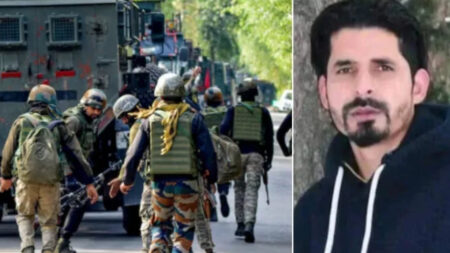A tier bench headed By Chief justice Vipin Sanghi and Justice R C Khulbe decided that during Eid al-Adha, animals be slaughtered just in the Manglaur municipality’s reasonable and effective slaughterhouse.

-
The Uttarakhand High Court approved animal slaughter for Bakri Eid in Manglaur, Uttarakhand’s Haridwar district, on Thursday.
- Animals should only be butchered at slaughterhouses that comply with the law on Eid al-Adha, according to a directive from Chief Justice Vipin Sanghi and Justice R C Khulbe.
The Uttarakhand High Court on Thursday overturned a state government declaration designating the whole Haridwar district as a “killing-free region” and permitted the slaughter of animals for Eid al-Adha on July 10 at a slaughterhouse located in the district’s Manglaur municipality.
A division bench of Chief Justice Vipin Sanghi and Justice R. C. Khulbe ordered that during Eid al-Adha, only animals must be slaughtered in the municipality’s only legally compliant slaughterhouse, built through a public-private partnership.
The civic body was also asked to publicise the court’s order.
Additionally, they instructed the petitioner who objected to the federal government’s decision to ensure that no other districts’ livestock were slaughtered.
Two municipal corporations, two nagar palika parishads, and five nagar panchayats in the Haridwar district were designated by the BJP government as “slaughterhouse-free regions” on March 3 of last year, and permission to operate slaughterhouses was revoked.
The notification from the city improvement division arrived before the Kumbh Mela. In a previous letter to the then-chief minister Trivendra Singh Rawat, BJP legislators from around the world demanded that slaughterhouses not be permitted in a “spiritual metropolis like Haridwar.”
Faisal Hussain, a resident of Haridwar, went before the high court to argue that animal slaughter is an important aspect of Islam’s spirituality and that it should be permitted at the abattoir in Manglaur, which was built last year but was unable to function because of the district’s general ban on animal slaughter.
Hussain’s attorney, Kartikey Hari Gupta, presented the court with “a photograph” of the Eid al-Adha celebrations from the previous year, during which, despite all restrictions, extensive animal slaughter took place on public streets in Manglaur. Gupta also stated that there would be no benefit from prohibiting slaughtering if the legal slaughterhouse remained closed.
According to him, the municipality’s population was made of 87.45% of Muslims. He appealed that if an animal slaughterhouse in Manglaur is permitted to kill animals, Hindus’ holy sensibilities won’t be harmed because the world is just approximately 45 kilometres from Haridwar city.
According to Gupta, who confirmed the court’s stay on the government order, the slaughterhouse was built in February of last year, and within a week of its owners applying to start operations, a general ban on animal slaughter was enacted.
“In 2011, an arbitrary court mandated that a slaughterhouse be built within three years. But it never happened, and the state government only permitted the Manglaur nagar palika to construct the slaughterhouse under the PPP technique in 2016.
The construction was finished in February 2021. However, the government declared the entirety of the Haridwar district to be slaughter-free in March.
We disputed this, pointing out that Manglaur is 45 miles from Haridwar City and won’t have an impact on Hindus’ spiritual beliefs. We also discussed the fact that the government itself had authorised the slaughterhouse,” he added.
The intervenor has also been ordered by the court to make sure that no slaughtering takes place outside of the slaughterhouses designated as being compliant with the law.
The bench further ordered Manglaur Municipality to educate the public and convince them to only butcher animals within such slaughterhouses and not outside. Advocate Kartikeya Hari Gupta represented the intervenor before the High Court.













